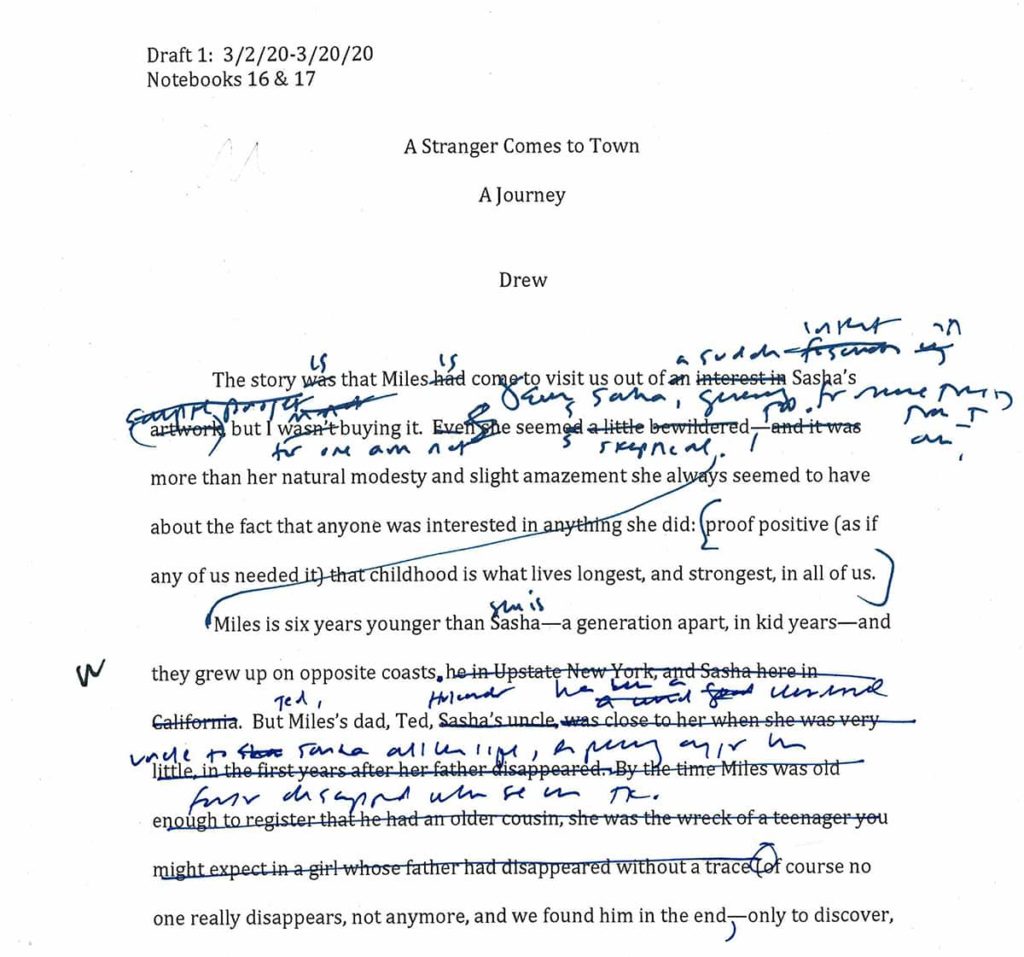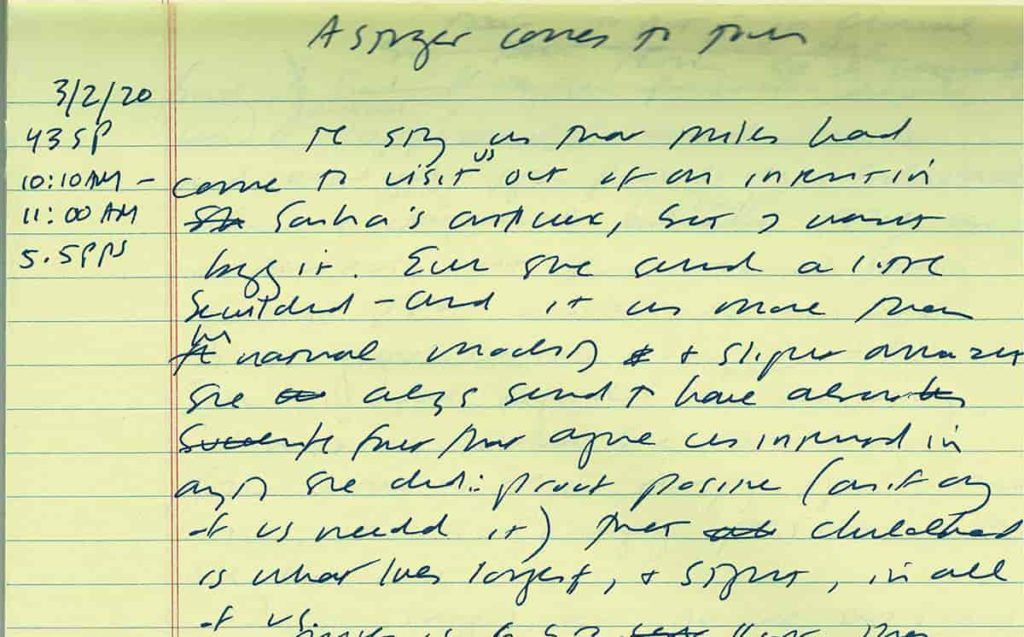A Journey
A Stranger Comes to Town
MILES
My cousin Sasha had lived in the desert for twenty years before I discovered she had become an artist. I was looking at her kids’ social media stories, as I often did with people I used to know, to see how they’d aged and try to gauge their happiness, when I saw a post from her son: “Proud of my Mom,” with a link to an article about Sasha in ARTnews. The picture showed dozens of hot-air balloons suspended above rambling, colorful sculptures stretched out across the California desert. According to the article, Sasha made these forms out of discarded plastic. Later she melted the sculptures down to create compressed bricks that had been displayed and sold, along with aerial photos of that same plastic in sculptural form, at art galleries.


Sasha! What the hell!
If anyone had required proof that life’s outcomes are impossible to predict, this development would have supplied it. Sasha had been a fuckup all the way into her thirties: a kleptomaniac who’d managed to pilfer countless items from countless people over countless years. How did I know? Because right before she married Drew, in 2008, she started returning things. Everyone in the family received an item or two, sometimes of so little value that it was amazing Sasha remembered what belonged to whom. My dad got a Bic pen, the kind they sold in bags of twenty at Staples. I, too, received a pen, but mine was a Montblanc worth several hundred dollars. I’d nearly had a brain hemorrhage when it vanished after a family dinner at a Korean restaurant while I was visiting New York. I’d phoned the restaurant, the taxi authority, the MTA; I’d retraced my steps through Korea-town, bent at the waist to scrutinize gutters. When that very same pen showed up in my mailbox a couple of years later with a handwritten note that began, “Since my teenage years I have struggled with a compulsion to steal, which has been a source of great anguish to me, and of loss and frustration to many others,” I called my dad.
“I know,” he said. “I got a Bic. I’m not even sure it’s mine, it might have belonged to the restaurant.”
“Can we please be done with her, Dad?” I asked. “Once and for all? She’s incorrigible.”
“She’s the opposite of incorrigible. She’s making amends.”
“I don’t want her amends. I want her to disappear.”
“What makes you say things like that, Miles?”
I remember exactly where I was standing when we had that conversation: on the deck of the lakeside Winnetka home Trudy and I had overleveraged ourselves to buy (she was pregnant with Polly, our first) and painstakingly decorated together: the site of a planned…